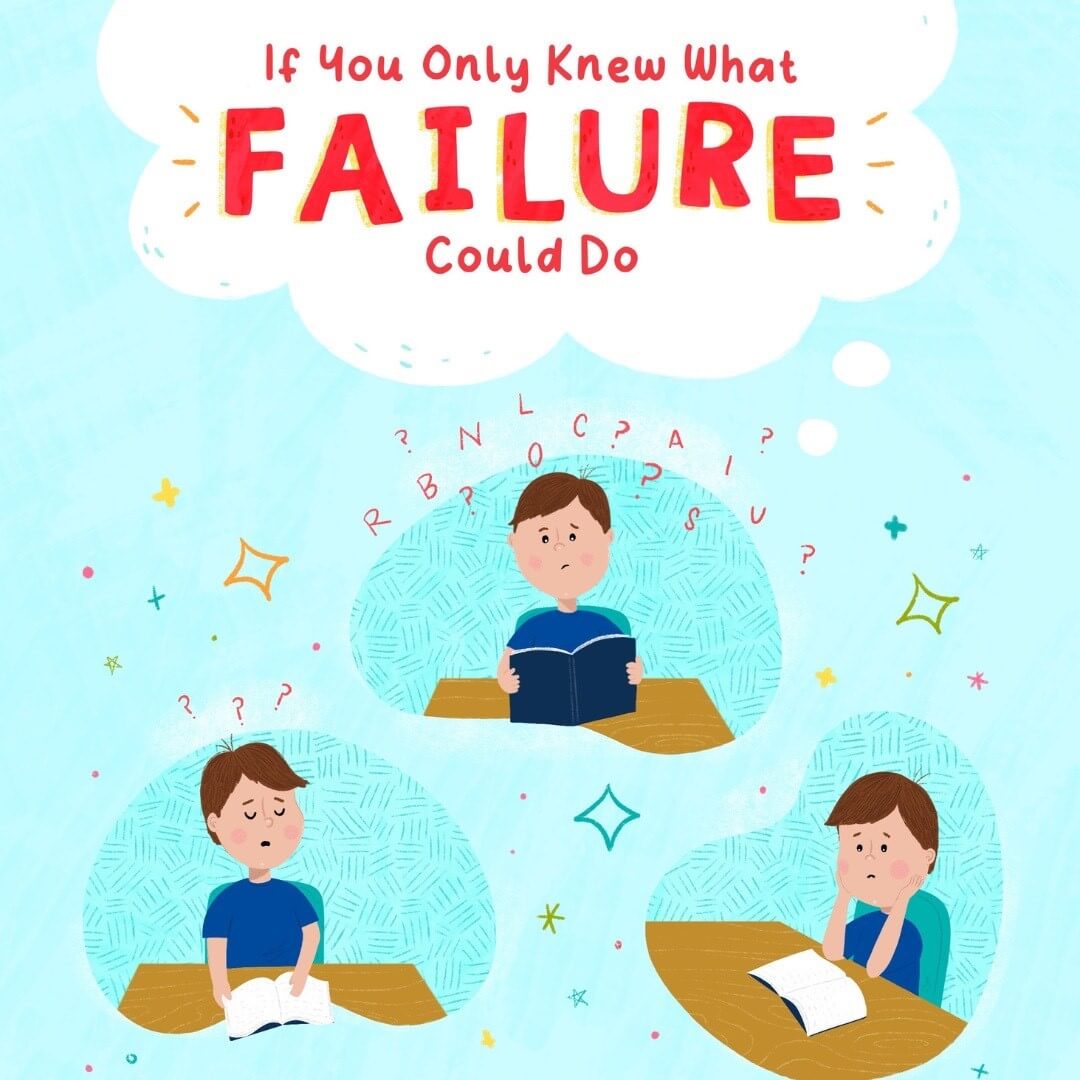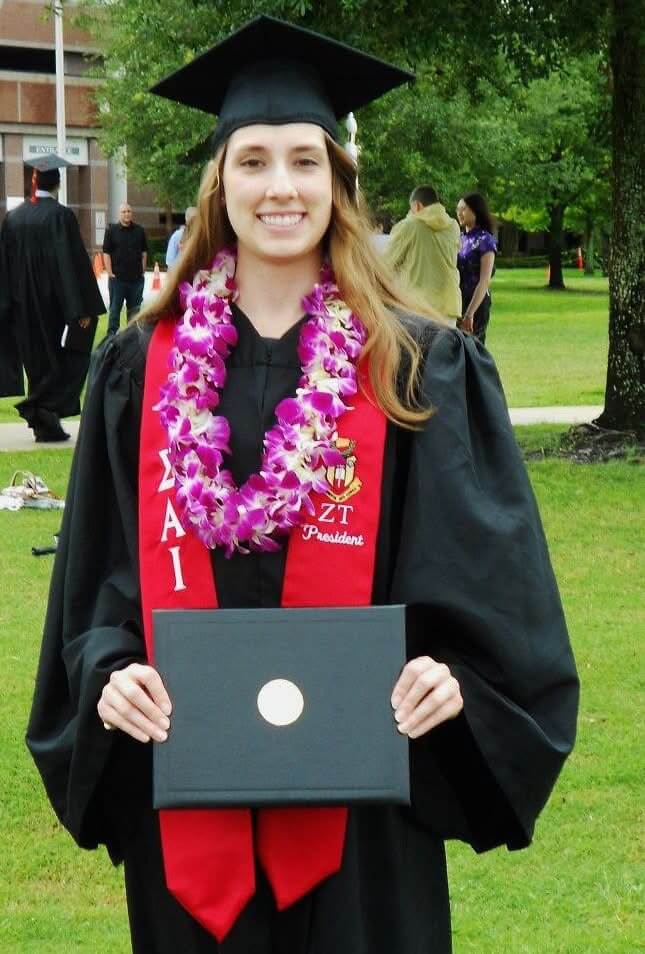Failure Matters: Peyton Giessuebel ’18 ’21 MEd Authors New Book, “If You Only Knew What Failure Could Do”
New author Peyton Giessuebel wants children and adults to know that making a mistake does not make you a failure.
Ever since Peyton Giessuebel was a little girl growing up in Central Florida, she knew she wanted to be a teacher. It was a career goal that was cemented by her first-grade teacher, Mrs. Daniels.

“She’s the one who inspired me to become an educator,” Giessuebel says. “Just her tenderness, her selflessness, her caring for her students – the way that she just loved all her students and gave them equal opportunities in the classroom.”
Giessuebel recently published “If You Only Knew What Failure Could Do,” a 32-page children’s book, and dedicated it to Mrs. Daniels.
It’s a topic about which Giessuebel is sensitive not only because of her profession, but also because it affected her personally.
“I experienced a lot of failures, not only when I was becoming a teacher, but through my entire educational journey,” Giessuebel says. “As a young child, I was a terrible test taker. Every test I took would not reflect what I had learned in the classroom – I was a straight-A student. But if you put a test in front of me, I would fail it.”
Giessuebel’s teachers and school administrators recognized that even though she did not have a “learning disability,” there were certain accommodations they could provide that would better reflect her classroom experience.
But when Giessuebel went to UCF, there were no accommodations.
“As I was going for my bachelor’s degree, I had to pass three or four certification exams to get my license to teach. I failed the grammar portion and the English portion seven times. It was really embarrassing for me.”
Giessuebel’s mother looked at her daughter and told her, ‘‘’You know, you were meant to be a teacher, and this will pay off one day.'”
She passed the exam her next try.
“My mom told me that one day, ‘this is going to be a great story for your students,'” Giessuebel says. “I didn’t understand what that meant, or what she meant by that. But now, I’m teaching third graders, which is when students are required to take the FSA ELA reading assessment, and I tell my kids all the time about what a terrible test-taker I was.”
Giessuebel is now in a doctoral program in curriculum and instruction at Capella University and is scheduled to appear at KnightED, a UCF event at the College of Community Innovation and Education in October (date TBD).
Giessuebel says she is happy to share the challenges she faced as a student with her own students, who face the possibility of staying in third grade if they do not pass the test.
“I see them paralyzed by fear when we tell them the state tests are coming up. They’re so nervous, they want to make their parents proud, they want to make sure they remember everything.”
Often, Giessuebel says, her students don’t even want to try new things because of the fear of failure. With her new book, she says that she is just trying to reshape the vision of failure.
“I think people are scared to even say the word ‘failure,'” Giessuebel says. “But I think it’s how we present it.”
She tells her students that yes, you may fail at this test, and that’s OK. She assures them that she knows that they understand the material, and that she can see where they made their mistakes.
“I think that it’s all about shifting the perspective because I think in reality we were made to fail, right? None of us is perfect, none of us is going to succeed at everything we do.”
Giessuebel was inspired to write her book after following a teacher on Instagram.
“She has 100,000 followers,” Giessuebel says. “And so, I saw that she wrote a book, and I was like, wait, I have a story. Why can’t I do that?”
It wasn’t that simple, exactly. First Giessuebel had to research the process to writing a manuscript, and then she had to find an illustrator to help her with the book’s art.
“I found the illustrator, Diana McDermott, through the same teacher I followed on Instagram, and I just loved her illustrations, they were so kid-friendly. They draw your attention to the story and they were just engaging, colorful, and everything I would want for my book.”

In the book, “Thomas,” a young student, is struggling with the idea of reading out loud to his classmates. It’s a struggle that Giessuebel says is common for students, and even for adults in her doctoral program. In general, nobody volunteers to read when an instructor says, “Who wants to read this page?”
As Thomas is reading, he comes across a word he doesn’t know, and immediately thinks that he has failed. But then, Mrs. Daniels comforts him, and shares her own failures, which, not coincidentally, mirrors Giessuebel’s test-taking experiences.
The book wraps up with Mrs. Daniels showing Thomas that “failing makes us strong and courageous, and builds character and confidence that allows us to confront future challenges without fear,” Giessuebel says. “And through that, Thomas’s relationship with failure changes for the better.”
The book’s message is one that Giessuebel hopes that people will embrace, not only If they are involved with education, but in their personal lives.
“Let’s change the narrative of failures, and how they’re presented, how they’re talked about and how they’re acted upon,” Giessuebel says. “I think that where you go to school matters, who you surround yourself with matters, and most importantly, failure matters. I want people to know that any failure in life will serve as a purpose later on.”
It’s a lesson that Giessuebel learned at UCF: “During my time at UCF, I had such a strong community of professors that, as a young educator, believed in me, inspired me, and motivated me. I can’t thank them enough.”


